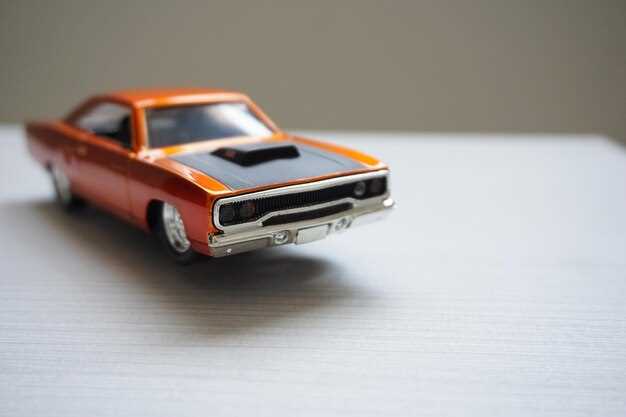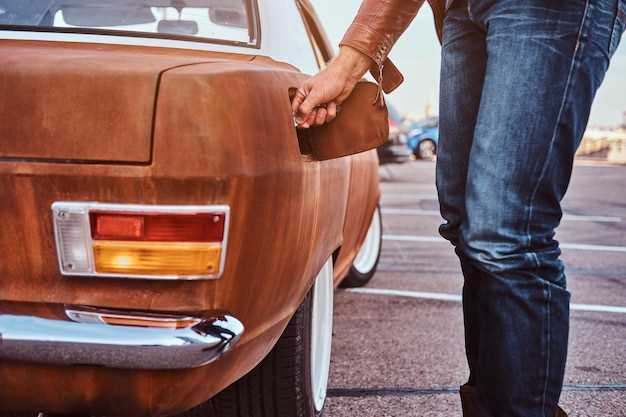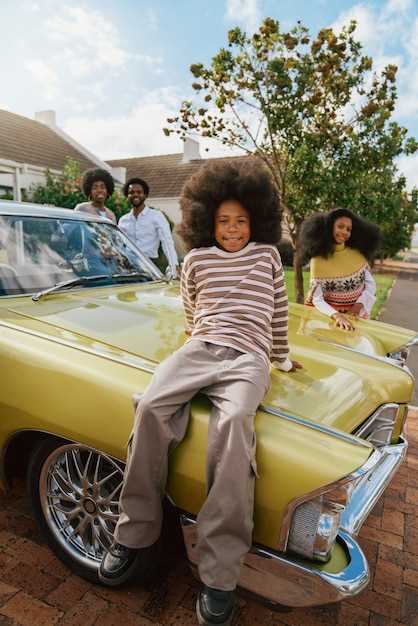
When it comes to owning a classic car, having the right insurance policy is essential for safeguarding your investment. Vintage cars, often seen as not just vehicles but also pieces of history, require special consideration when it comes to their coverage. Standard car insurance does not always account for the unique value and specific needs of classic vehicles, which is why understanding how to properly insure them is crucial.
To adequately protect your classic car, it is important to familiarize yourself with the specific types of insurance available for vintage vehicles. These policies often differ from those designed for everyday cars, providing benefits that acknowledge the intrinsic worth of classic models. Look for policies that offer agreed value coverage, ensuring you receive full compensation for your vintage car in the event of a loss, rather than a depreciated amount.
Additionally, consider factors such as mileage limits, storage conditions, and the car’s restoration details when choosing an insurance policy. By carefully selecting the right coverage options, you can enhance the protection of your classic car, allowing you to enjoy it without worry while investing wisely in its future.
Choosing the Right Coverage for Classic Cars

When it comes to insuring your cherished classic car, selecting the appropriate policy is crucial. Classic cars often embody significant historical value, making standard auto insurance inadequate. Here are key considerations to help you choose the right coverage:
- Understand Your Car’s Value: Determine the market value of your classic car. This can vary based on make, model, condition, and rarity. An accurate valuation ensures you receive sufficient coverage.
- Specialized Classic Car Insurance: Look for insurers that specialize in classic car coverage. These policies often offer unique benefits tailored to the needs of vintage vehicle owners.
- Agreed Value vs. Actual Cash Value: Opt for an “agreed value” policy, which guarantees a pre-determined payout in case of a total loss. This is preferable to “actual cash value,” which factors in depreciation.
- Usage Considerations: Assess how often you drive your classic car. If it’s a showpiece that remains parked most of the time, you may qualify for lower premiums with limited mileage options.
- Storage Conditions: Insurers often inquire about where you store your car. Secure garage storage may provide discounts as it reduces the risk of theft or damage.
Choosing the right insurance policy for your classic car is not just about financial protection; it ensures peace of mind while you enjoy your automotive treasure. Always review policy options carefully and consult with professionals to tailor your coverage effectively.
Understanding Policy Limits and Valuation Methods

When insuring a classic car, it’s crucial to understand the policy limits associated with your insurance plan. Policy limits define the maximum amount your insurer will pay in the event of a total loss or significant damage. Knowing these limits helps you ensure your vintage vehicle is adequately covered, as classic cars often appreciate in value over time. Setting a limit that reflects your car’s current market value is essential for effective protection.
Valuation methods play a significant role in determining your classic car’s insurance coverage. The most common methods include agreed value and stated value. Agreed value is an arrangement where both the policyholder and insurer agree on the car’s value at the start of the policy. This ensures that in case of a claim, you receive the agreed amount without depreciation considerations. Conversely, a stated value policy sets a maximum amount for the car’s worth, but the insurer may depreciate during a claim evaluation.
It’s essential to keep records of your classic car’s condition, modifications, and recent appraisals to support its valuation. By presenting this documentation to your insurance provider, you can ensure the policy accurately reflects the true value of your vintage vehicle. Regularly reevaluating your policy limits and valuation methods helps protect your investment and maintain peace of mind.
Safeguarding Your Investment with Additional Endorsements
When it comes to insuring your classic car, a standard policy may not offer adequate protection for your unique investment. Additional endorsements can enhance coverage, ensuring that you are fully protected against various risks that could impact the value of your vehicle.
Agreed Value Coverage is a critical endorsement for classic cars. Unlike traditional policies that pay the current market value of a vehicle at the time of a claim, agreed value coverage guarantees a pre-determined sum. This protects you from depreciation and provides peace of mind that you will receive a fair payout in the event of a total loss.
Another valuable addition is Comprehensive Coverage, which safeguards your classic car from non-collision incidents, such as theft, vandalism, and natural disasters. Since these vehicles often appreciate in value, ensuring they are covered for their full worth is essential.
Roadside Assistance is also beneficial. Classic cars may require specialized care, and having a roadside assistance endorsement ensures that you have access to professional help when needed. Whether it’s a mechanical failure or a flat tire, having the right support can prevent further damage and preserve your investment.
Usage-Based Insurance options can also be included, which allows you to tailor the policy to your driving habits. Since classic cars are often not used as daily drivers, this adjustment can lead to lower premiums without sacrificing necessary coverage.
Finally, consider Collectible Car Insurance endorsements that address unique aspects of owning a classic vehicle. These endorsements are specifically designed for vintage cars, offering tailored solutions that general auto policies may overlook. This can include coverage for modifications or accessories that add value to your vehicle.
Utilizing additional endorsements ensures that your classic car is well-protected and allows you to enjoy your investment without worry. Consider discussing these options with your insurance provider to create a policy that reflects the true value and uniqueness of your classic car.

